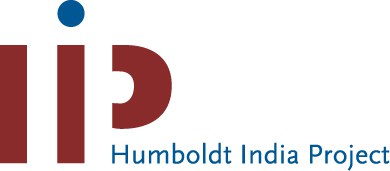‘Speaking’ the Nation: (E)merging faces of economic reforms and secularism in the rhetoric of India’s Prime Ministers, 1991-2011
The starting point of the research is 1991, which demarcates the formal institutionalization of the neoliberal economic reforms. These more specifically incorporated: a deregulation of economic laws, initiation of privatization, shrinking role of the, until then prevalent, monopoly of the public sector, tax reforms, devaluation of the Rupee, opening up of the economy for international trade and foreign direct investment. Since 1991, a plethora of channels from both within and outside India have profiled it as an ‘Emerging Giant,’ ‘the airplane that has taken off!,’ ‘The Next Big Thing!,’ bearing captions such as ‘India Emerging,’ ‘India Shining,’ ‘India Rising,’ ‘India on the move,’ ‘a pulsating new dynamic India!’ ‘Incredible India,’ ‘Resilient India,’ ‘India Now.’ These discursive projections, which initiated with externally produced economic speculations, have been broadened in scope in the last two decades, extending to metaphors describing India as the world’s youngest yet largest democracy, a nuclear power, a military power coupled with a fast-paced IT revolution, a knowledge economy, to name some. Such adulations have added a more recent, albeit prominent dimension to the multiple imaginations of the project called ‘India.’ Set against the backdrop of this literature, which I have used in my thesis only to provide a background, the dissertation proceeds with the main question: How do the Indian governments actively profile ‘India’ vis-à-vis this discourse of ‘India Emerging?’ More precisely, how do three Indian governments, which have been in power at the Centre since 1991, respond to, re-interpret, cultivate and even re-produce such discourses in their own creative flavours? I approach this question by tracing how this staging of ‘Emerging India’ is linguistically operationalized in the spoken words of three Indian prime ministers after 1991, both for what they conceive as the outside world as also for ‘Indians’ in and outside India. In doing so, the PMs produce notions of Indian-ness but also re-create the legitimacy of their own governments. The terms ‘Outside/External’ and ‘Inside/Internal’ are emic categories, that is, they refer to the distinctions as intended and drawn in the addresses by the prime ministers. This question is pursued within the two cross-cutting thematics of the neo-liberal economic reforms and secularism. More specifically, how do the three Prime Ministers, after 1991, project India, firstly, as an ‘Economic Powerhouse of the 21st century’ and therein inevitablize the neoliberal reforms and secondly, as a ‘secular yet emerging nation.’ In total, I have analysed 1158 speeches delivered by the three Indian prime ministers from 1991-2011.
Anandita Bajpai is currently a post doctoral fellow at the Department of South Asian Studies, Institute for Asian and African Studies, Humboldt University, Berlin and the Zentrum fuer Moderne Orient (ZMO), Berlin. She defended her PhD dissertation (Global Studies) on July 15, 2014 at the Leipzig University (extrenal supervision: Prof. Dr. Michael Mann at Humboldt University, Berlin).She holds a Master’s Degree in Global Studies from the Universities of Leipzig, Germany and Vienna, Austria. Her Master’s Thesis studied the role of the Catholic Church as an Education Provider in Puerto Rico: 1948-60. During her Doctoral Studies, she has offered various seminars as at the Departments of Sociology and the Global and European Studies Institute, University of Leipzig and the Department of South Asian Studies, Humboldt University, Berlin.




